
Anita Belle Colton, known professionally as Anita O'Day, was an American jazz singer and self proclaimed “song stylist” widely admired for her sense of rhythm and dynamics, and her early big band appearances that shattered the traditional image of the "girl singer". Refusing to pander to any female stereotype, O'Day presented herself as a "hip" jazz musician, wearing a band jacket and skirt as opposed to an evening gown. She changed her surname from Colton to O'Day, pig Latin for "dough", slang for money.
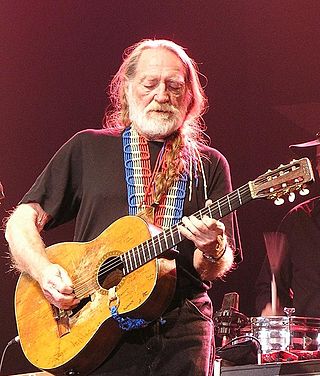
Willie Hugh Nelson is an American country singer, guitarist and songwriter. He was one of the main figures of the outlaw country subgenre that developed in the late 1960s as a reaction to the conservative restrictions of the Nashville sound. The critical success of his album Shotgun Willie (1973), combined with the critical and commercial success of Red Headed Stranger (1975) and Stardust (1978), made Nelson one of the most recognized artists in country music. Nelson has acted in over 30 films, co-authored several books, and has been involved in activism for the use of biofuels and the legalization of marijuana.
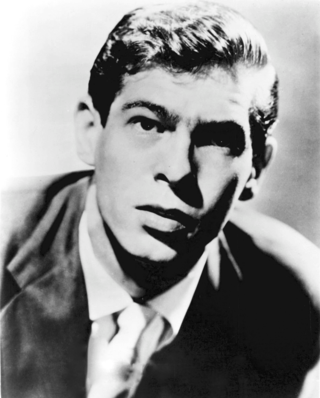
John Alvin Ray was an American singer, songwriter, and pianist. Highly popular for most of the 1950s, Ray has been cited by critics as a major precursor to what became rock and roll, for his jazz and blues-influenced music, and his animated stage personality. Tony Bennett called Ray the "father of rock and roll", and historians have noted him as a pioneering figure in the development of the genre.
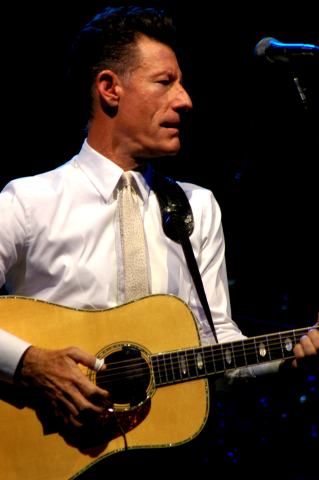
Lyle Pearce Lovett is an American country singer. Active since 1980, he has recorded 14 albums and released 25 singles to date, including his highest entry, the number 10 chart hit on the U.S. Billboard Hot Country Songs chart, "Cowboy Man". Lovett has won four Grammy Awards, including Best Male Country Vocal Performance and Best Country Album. His most recent album is 12th of June, released in 2022.

Nashville Star is an American reality television singing competition program that aired for six seasons, from 2003 to 2008. Its first five seasons aired on USA Network, while the last season aired on NBC. Its five seasons on USA made it the longest-running competition series on cable television at the time. In Canada, the show aired on CMT through season 5, but moved to E! beginning with season 6. CMT in the United States reaired each episode in season 6.
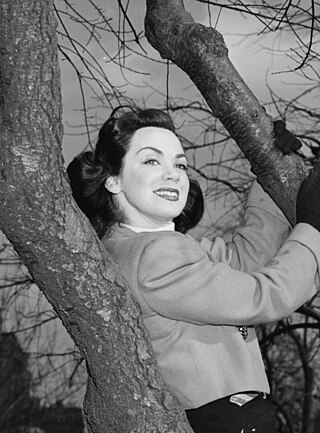
Kitty Kallen was an American singer whose career spanned from the 1930s to the 1960s, to include the Swing era of the Big Band years, the post-World War II pop scene and the early years of rock 'n roll. Kallen performed with popular big band leaders of the 1940s, including Jimmy Dorsey and Harry James, before establishing a solo career.
Charles Arthur Feathers was an American musician most associated with the rockabilly scene of the 1950s. Although not initially recognized for his contributions to rockabilly, over time his presence would become greatly elevated and he has been cited as an influence by a number of musicians.
Roselea Arbana "Rose" Maddox was an American country singer-songwriter and fiddle player, who was the lead singer with the Maddox Brothers and Rose before a successful solo career. Her musical styles blended hillbilly music, rockabilly and gospel. She was noted for her "reputation as a lusty firebrand", and her "colorful Western costumes"; she was one of the earliest clients of Hollywood tailor, Nathan Turk.
The Maddox Brothers and Rose were an American country music group active from the 1930s to 1950s, consisting of four brothers, Fred, Cal, Cliff, and Don Maddox, along with their sister Rose; Cliff died in 1949 and was replaced by brother Henry. Originating in Alabama, but gaining success after the Maddox family relocated to California during the Great Depression, the group were among the earliest "hillbilly music" stars to emerge from the West Coast. The group disbanded in 1956, with Rose Maddox embarking on a solo career.
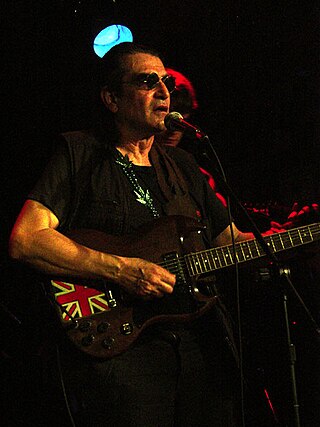
David Peel was a New York City–based musician who first recorded in the late 1960s with Harold Black, Billy Joe White, George Cori and Larry Adam performing as David Peel and The Lower East Side Band. His raw, acoustic "street rock" with lyrics about marijuana and "bad cops" appealed mostly to hippies and the disenfranchised.

Clyde Julian "Red" Foley was an American musician who made a major contribution to the growth of country music after World War II.

"You Don't Know Me" is a song written by Eddy Arnold and Cindy Walker in 1955. "You Don't Know Me" was first recorded by Arnold that year and released as a single on April 21, 1956, on RCA Victor. The best-selling version of the song is by Ray Charles, who took it to number 2 on the Billboard Hot 100 chart in 1962, after releasing the song on his number 1 album Modern Sounds in Country and Western Music. The first version of the song to make the Billboard charts was by Jerry Vale in 1956, peaking at number 14 on the pop chart. Arnold's version charted two months later, released as an RCA Victor single, 47–6502, backed with "The Rockin' Mockin' Bird", which reached number 10 on the Billboard country chart. Cash Box magazine, which combined all best-selling versions at one position, included a version by Carmen McRae that never appeared in the Billboard Top 100 Sides listing.

Waylon at JD's is the debut studio album by American singer Waylon Jennings. Though listed in several sources as a live recording, it is in fact a studio album, recorded at Arizona Recorders in Phoenix on December 4, 1964. 2000's The Restless Kid: Live At JD's is a genuine JD's era live recording.
The Palomino Club was a renowned music venue located in the North Hollywood neighborhood of Los Angeles. Established in 1949, it was the most prominent country music club in the city for decades before its closure in 1995. The Los Angeles Times referred to it as "Country Music's most important West Coast club" and it was honored as the national Club of the Year by the Performance magazine. In the late 1980s and 1990s, the Palomino began to feature more rock acts, including many artists associated with SST Records.

"Al di là" ("Beyond") is a song written by Italian composer Carlo Donida and lyricist Mogol, and recorded by Betty Curtis. The English lyrics were written by Ervin Drake. The song was the Italian entry in the Eurovision Song Contest 1961, performed in Italian by Curtis at the Palais des Festivals in Cannes, France, on 18 March 1961, after Curtis had won the Sanremo Music Festival 1961 on 2 February.

Gay Pimpin' with Jonny McGovern is a bi-weekly free gay-themed podcast based out of Hollywood, California, originally out of New York City. The show, which is hosted by Jonny McGovern, began airing on January 16, 2006.
Kenneth F. Nelson was an American record producer and A & R man for Capitol Records.
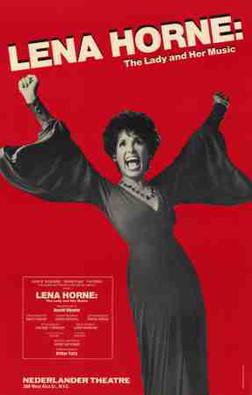
Lena Horne: The Lady and Her Music was a 1981 Broadway musical revue written for and starring American singer and actress Lena Horne. The musical was produced by Michael Frazier and Fred Walker, and the cast album was produced by Quincy Jones. The well received show opened on May 12, 1981, at the Nederlander Theatre and after 333 performances, closing to go on tour on June 30, 1982, Horne's 65th birthday. Horne toured with the show in the U.S. and Canada and performed in London and Stockholm in 1984.
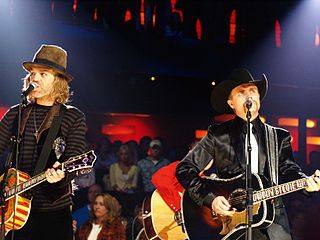
Big & Rich is an American country music duo composed of Big Kenny and John Rich, both of whom are songwriters, vocalists, and guitarists. Before the duo's foundation, Rich was bass guitarist in the country band Lonestar, while Kenny was a solo artist for Hollywood Records.

Roberta Sherwood was an American singer, notable in part for her sudden rise to fame at the age of 43.















